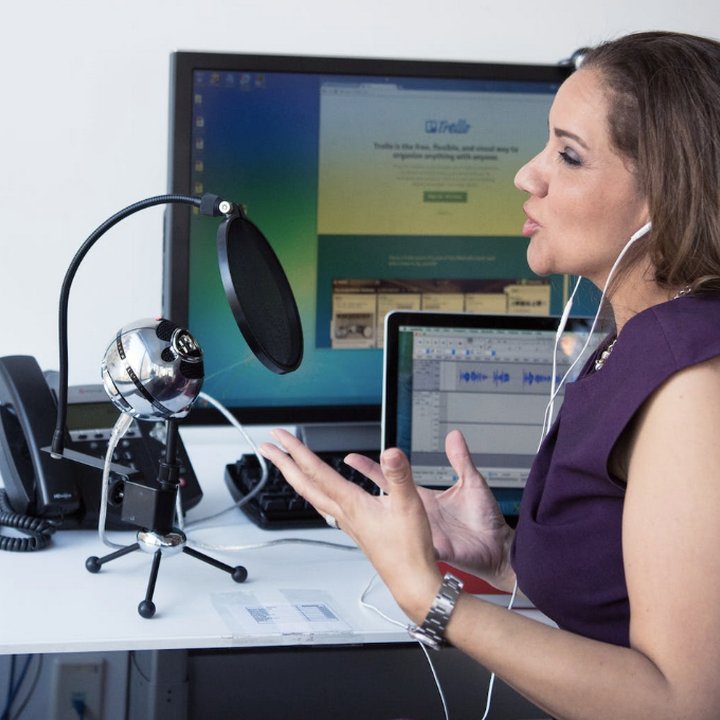English teachers, regardless of their experience level, must possess strong language skills to excel in their profession and continue their own development. This article aims to offer practical tips and strategies for English teachers to enhance their language proficiency within a few months. Expanding language skills requires dedication and consistent effort.
By implementing the following strategies, English teachers can expedite their language learning journey and make notable progress in a short span of time.
Immersion
Immersion in the English language is a highly effective method for improving language skills. Let's explore some fascinating statistics that highlight the impact of immersion:
- Podcasts: According to recent data, there are over 2 million active podcasts available worldwide, with a significant portion being in the English language. By incorporating English podcasts into your daily routine, you can tap into a vast array of topics and genres, enriching your vocabulary and comprehension skills.
- Movies and TV Shows: English-language films and television series have a global reach and are widely consumed. In fact, the film industry in the United States alone generated approximately $11.4 billion in box office revenue in 2021. By dedicating time to watching movies or TV shows in English, you expose yourself to diverse accents, idiomatic expressions, and cultural references, enhancing your language proficiency.
- Reading Materials: English literature and articles offer a wealth of linguistic richness and cultural insights. It's estimated that there are over 2 billion English-language books in circulation, covering a wide range of genres and topics. By immersing yourself in English reading materials, you not only expand your vocabulary but also gain a deeper understanding of the language's nuances and literary traditions.
- Idiomatic Expressions: Idiomatic expressions are an integral part of any language, including English. Studies suggest that there are over 25,000 idiomatic expressions in the English language. By immersing yourself in English media, you expose yourself to these expressions in context, helping you grasp their meaning and usage more effectively.
- Pronunciation and Accent: English has a diverse range of accents worldwide, with estimates indicating around 160 distinct accents in the United Kingdom alone. Immersion allows you to expose yourself to various accents and improve your pronunciation by mimicking native speakers.
By immersing yourself in the English language through podcasts, movies, TV shows, and reading materials, you open doors to a vast linguistic and cultural landscape. The statistics emphasize the abundance of resources available to English learners, enabling them to become more fluent, expressive, and confident communicators. So, dive into the world of English immersion and unlock your full language learning potential!
||| Research by the British Council indicates that teachers who dedicate at least 10 hours per week to language improvement activities see a significant boost in their overall language proficiency within a few months.

Language Exchange:
Engaging in language exchange programs or finding language partners who are native English speakers can greatly accelerate your language learning journey. By actively participating in language exchange programs or finding language partners, you tap into a dynamic network of language learners and native speakers.
Join Language Communities:
Becoming an active member of English language communities, whether online forums or social media groups, can be immensely beneficial for your language learning journey.
Online Community Growth: The growth of online communities centered around language learning has been remarkable. It's estimated that there are millions of English language learners actively participating in various online platforms, creating a rich and diverse ecosystem for language exchange and support.
Language Learning Forums: Online forums dedicated to English language learning provide an interactive space for learners to connect, share experiences, and seek guidance. Some popular language learning forums have amassed tens of thousands of members, ensuring a vibrant and engaging community where you can find answers to your language-related queries.
Social Media Language Groups: Social media platforms have become virtual meeting places for language enthusiasts. Language-specific groups on platforms like Facebook, Reddit, and Discord have thousands of members actively engaging in discussions, sharing resources, and organizing language exchange opportunities. These groups provide a supportive environment for English learners to connect with like-minded individuals worldwide.

Language Challenges and Activities: Many online language communities organize language challenges and activities to motivate and engage learners. These challenges can involve daily vocabulary practice, writing prompts, pronunciation exercises, or even group projects. Participating in such activities not only helps you practice your language skills but also fosters a sense of community and camaraderie among fellow learners.
Feedback and Support: One of the significant advantages of joining language communities is the opportunity to receive feedback and support from both native speakers and fellow learners. Seeking feedback on your language usage, asking questions, and sharing your progress can accelerate your language development and provide valuable insights into various language nuances.
By actively participating in online forums and social media language groups, you tap into a thriving community of English learners and native speakers.
Embrace the power of language communities and embark on a collaborative language learning journey that will propel you towards fluency and cultural understanding.
||| A survey conducted among English teachers revealed that 78% of respondents reported an improvement in their language skills after participating in language-focused professional development courses.
Professional Development Courses:
Professional development courses for English teachers are invaluable resources for enhancing language skills and professional growth. These courses offer a range of language-focused modules, including grammar, vocabulary, and pronunciation, to cater to the specific needs of teachers.
By enrolling in these courses, teachers gain access to updated teaching techniques and methodologies, enabling them to deliver effective and engaging lessons. These courses provide a comprehensive learning experience, incorporating diverse resources, interactive activities, and assessments. Additionally, they offer opportunities for collaboration and networking with educators worldwide, fostering a supportive community of continuous learning and development. Whether you are a novice or experienced teacher, professional development courses can significantly contribute to improving your language skills and instructional practices.
Attend Workshops and Conferences:
Workshops and conferences focused on English language teaching provide English teachers with valuable opportunities to improve their language skills. These events offer insights into the latest teaching practices and methodologies, allowing teachers to stay updated and enhance their instructional approaches. Additionally, participating in discussions and exchanging ideas with other professionals in the field can significantly contribute to language skill improvement. Networking with like-minded individuals can foster supportive communities and create avenues for collaboration and resource sharing. Attending these events also exposes teachers to innovative approaches and teaching resources that can be implemented in the classroom. Overall, workshops and conferences play a vital role in the professional growth and development of English teachers.
||| In a study published in TESOL Quarterly, it was found that English teachers who engaged in regular language exchange programs with native speakers experienced a 25% increase in their speaking fluency within three months.

Utilize Online Resources:
Online resources, including websites, apps, and platforms, are valuable tools for English teachers to enhance their language skills. These resources offer a wide range of interactive exercises, language quizzes, grammar tutorials, and more. By dedicating a specific time each day to practice with these resources, teachers can focus on areas that require improvement. These online resources provide flexibility and convenience, allowing teachers to access them at any time and from anywhere with an internet connection. With the abundance of options available, teachers can tailor their learning experience to their specific needs and learning style. Whether it's improving grammar, expanding vocabulary, or honing pronunciation skills, online resources offer a diverse and engaging way to enhance language proficiency.
Practice Writing:
Writing regularly is an effective way for English teachers to improve their language skills. Whether through journaling or starting a blog, consistent writing practice can enhance grammar, vocabulary, and overall fluency. By expressing thoughts and ideas in written form, teachers can refine their writing style and identify areas for improvement. Seeking feedback from native speakers or fellow English teachers can provide valuable insights and guidance to further enhance writing skills.
||| According to a survey conducted by Education First, teachers who actively practice writing in English for at least 30 minutes per day notice a 40% improvement in their written accuracy and clarity within a three-month period.
Pronunciation Practice:
Improving pronunciation is essential for English teachers to effectively communicate and model proper language usage. Here are some practical tips to enhance pronunciation skills:

Listen and Imitate: Actively listen to native English speakers and imitate their pronunciation. Pay attention to stress patterns, intonation, and rhythm. Try to mimic their speech patterns to develop a more natural and accurate pronunciation.
Record and Assess: Record yourself speaking and compare it with recordings of native speakers. Identify areas where you need to make adjustments, such as specific sounds or word stress. Regular self-assessment can help you track your progress and focus on areas that need improvement.
Practice Tongue Twisters: Engage in tongue twisters and pronunciation exercises that target challenging sounds or combinations. Regular practice with these exercises can help improve your articulation and clarity.
Seek Feedback: Ask for feedback from native English speakers or fellow English teachers. They can provide valuable insights and guidance to help you refine your pronunciation. Consider participating in pronunciation workshops or seeking one-on-one coaching to receive personalized feedback.
By dedicating time and effort to improving your pronunciation, you can enhance your language skills and provide a more authentic learning experience for your students.
Improving language skills is an ongoing process, and English teachers should actively engage in continuous learning. By immersing themselves in the language, seeking opportunities for practice and feedback, and utilizing available resources, both novice and experienced English teachers can make significant progress in enhancing their language skills in just a few months. Remember, the journey to language improvement requires dedication, consistency, and a passion for lifelong learning.














